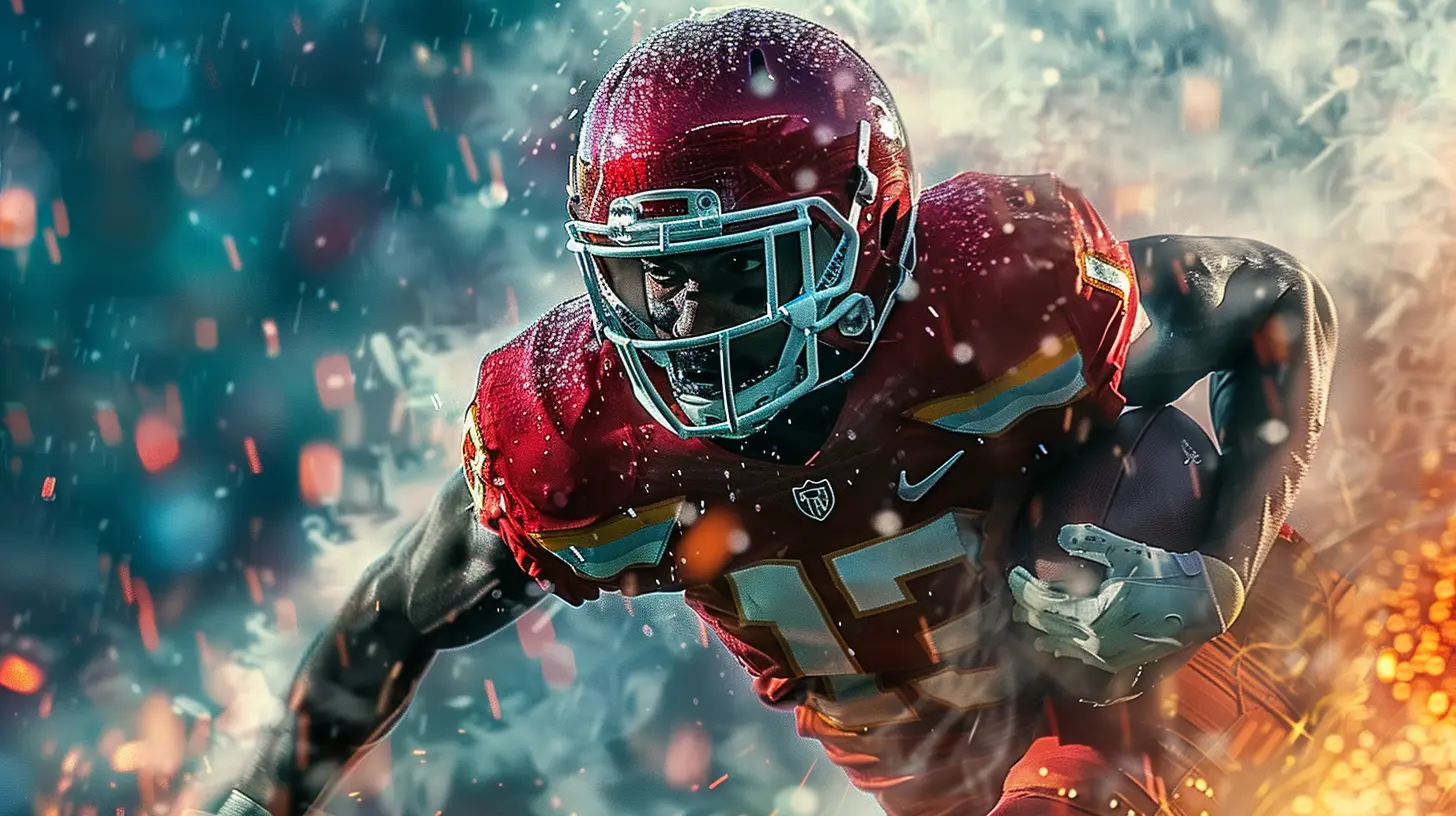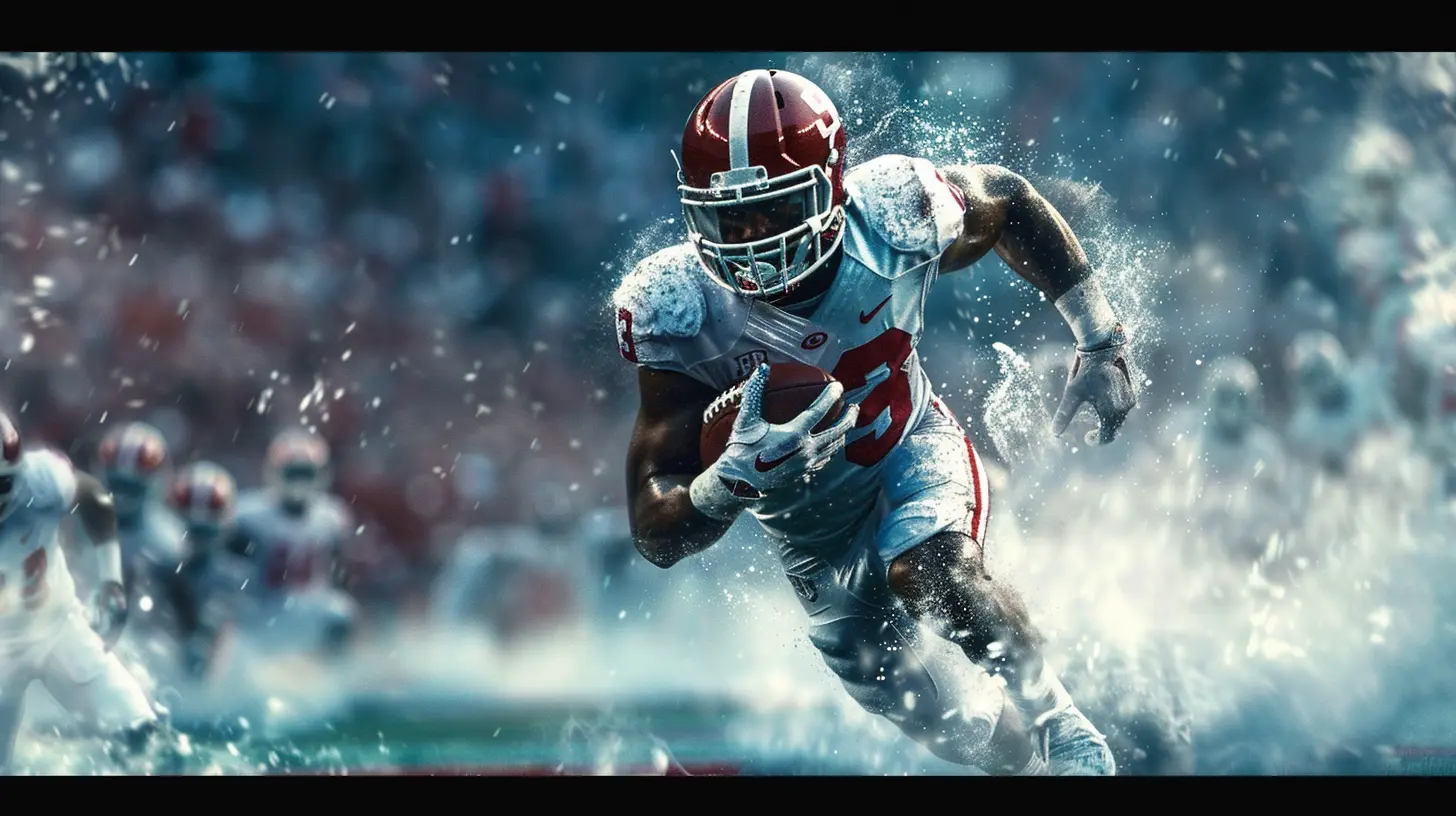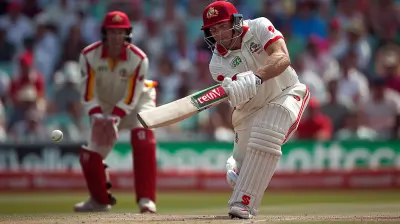The Importance of Mental Toughness in High-Stakes Games
4 October 2025
Let’s be honest—when the pressure’s on, talent alone doesn’t always cut it. Whether it's the final minute of a championship game or stepping up to take a penalty shot with the crowd holding their breath, the mental game often becomes the deciding factor. This is where mental toughness comes in.
It’s that gritty, unshakable mindset athletes rely on to push through pressure, recover from setbacks, and perform when it really, really matters. We've all seen it—some athletes crumble in clutch moments, while others seem ice-cold, thriving under pressure. What separates the two? Spoiler alert: It's not just skill. It’s the mind.
So buckle up, and let’s dive into why mental toughness is the secret weapon in high-stakes games—and how it can make or break an athlete.
What Really Is Mental Toughness?
Alright, let’s break it down.Mental toughness isn’t about being emotionless. It doesn’t mean ignoring fear or pretending pressure doesn’t exist. It means acknowledging all those thoughts and feelings—but performing anyway. It’s the ability to stay focused, confident, and in control, even when the stakes are sky-high.
In simpler terms? Mental toughness is your brain’s version of clutch performance. If your body is your engine, your mind is the driver.
Four Key Pillars of Mental Toughness
When you look at elite performers across sports, they usually share these four traits:1. Confidence – Believing in yourself, especially in crunch time.
2. Focus – Keeping distractions out and staying locked in.
3. Composure – Staying cool even when chaos is unfolding.
4. Resilience – Bouncing back from mistakes like they never happened.
Without these, even the most physically gifted athlete can crack under pressure.
Why High-Stakes Games Are a Whole Different Beast
Let’s not sugarcoat it—high-stakes situations are brutal. Your heart's racing, the crowd's loud, expectations are sky-high, and one mistake can mean the end.Picture this: It’s overtime. You’re down by two points with seconds left. Your coach draws up the final play, and the ball is in your hands. In that moment, every ounce of training matters—but your mindset? That’s everything.
This is where the mentally tough pull ahead.
Pressure Changes Everything
Pressure doesn’t just make you sweat—it actually messes with your performance. Your motor skills tighten up, decision-making slows down, and your brain starts second-guessing everything.Ever heard of “choking under pressure”? Yep, that’s what happens when mental toughness is missing.
But the athletes who shine during these moments? They’ve trained their minds as much as their bodies. They’ve practiced breathing through stress, silencing the noise, and making sharp decisions even when it feels like the world is watching (because sometimes, it is).
Real-Life Examples: When Mental Strength Wins the Game
Let’s go beyond theory and talk about real stories. These aren’t just feel-good anecdotes; they’re proof that mindset matters.Michael Jordan – The Clutch King
You knew this was coming. MJ wasn’t just a physical beast—he was a mental warrior. Time and time again, Jordan delivered in clutch situations. What set him apart wasn’t just talent—it was an unwavering belief in himself and an obsession with competing. He once said, “I've failed over and over and over again in my life... and that’s why I succeed.” That’s resilience in action.Serena Williams – Mental Fortitude on the Court
Serena’s career is packed with comebacks. From injuries to media scrutiny and high-pressure finals, she’s faced it all. But what’s remarkable is how she stays laser-focused and keeps showing up with the same fire, match after match. That’s mental toughness.Tom Brady – The Comeback Craftsman
The 28–3 Super Bowl comeback will be remembered forever. You’re down by 25 points. Most players would accept defeat. Not Brady. With calm, poise, and laser focus, he led the Patriots to victory. That wasn’t just skill. That was a masterclass in mental composure.
Can You Train Mental Toughness? Heck Yes.
Here’s the good news—you’re not born with mental toughness. It's built, just like biceps in the gym. You can train it. You can strengthen it. You just need the right tools and habits.Let’s break down some ways to do exactly that.
1. Visualization: Win In Your Mind First
Before stepping onto the court or field, mentally rehearse success. Picture yourself landing the game-winning shot or making a clutch save. Your brain doesn’t always know the difference between real and imagined experience—use that to your advantage.2. Embrace Pressure in Practice
Don’t avoid pressure—create it. Run game simulations. Add rewards or consequences to drills. Make training uncomfortable. That way, when the real moment hits, your brain says, “Been there. Done that.”3. Breathe Like You Mean It
Deep, controlled breathing is a weapon. When stress hits, your body reacts—but your breath can bring it all back down. Try box breathing (inhale 4 seconds, hold 4, exhale 4, hold 4). It brings calm when chaos threatens to kick in.4. Talk to Yourself (Yeah, Really)
Positive self-talk isn’t cheesy—it’s science-backed. Swap “I hope I don’t miss” for “I’ve made this shot hundreds of times.” What you tell yourself matters. Your brain listens.5. Learn from Failure
Mistakes? They’re not the enemy. They’re feedback. Use them. Mentally tough athletes don’t let failures define them—they let them refine them.Coaches and Teams: You Play a Huge Role Too
Mental toughness isn’t just built in the athlete’s head—it’s shaped by their environment. Coaches, you’re huge in this.How Coaches Can Help Build Mental Toughness
- Normalize Pressure: Don’t shy away from big moments. Prepare your players for them.- Model Composure: Your athletes feed off your energy. Stay calm, even when the game’s tight.
- Empower Decision-Making: Let your players make calls. That builds confidence for real moments.
- Celebrate Grit: Don’t just reward points. Reward hustle, resilience, smart thinking.
And teammates? You’re part of this, too. Encourage one another. Pick up the player who missed. Be the voice that says, “We got this.”
The Mental Game vs. The Physical Game
Let’s get one thing straight: You can’t have one without the other. Physical skills matter. Conditioning matters. But when the margins are razor-thin—when both teams are evenly matched—it’s the mental edge that tips the scale.Physical Preparation Gets You There. Mental Toughness Keeps You There.
Think of your body as a Ferrari engine. Without the right driver (aka a strong mindset), you’ll stall. You can’t floor it with self-doubt dragging you back.Every Level of Athlete Needs Mental Toughness
From youth players to pros, mental toughness isn’t optional. It’s the glue that holds performance together under pressure.Young athletes face peer pressure, performance anxiety, and the fear of failure. Adults juggle expectations, injuries, and public scrutiny. The playing field changes, but the mental game is always there.
And hey, it’s not just for sports. Mental toughness carries over into life too—job interviews, public speaking, relationships. It’s a muscle you'll use everywhere.
Final Thoughts: Pressure Doesn’t Break You, It Builds You
High-stakes games test more than your skills—they test your soul a little. But here’s the beautiful part: Pressure doesn’t have to break you. It can build you.Mental toughness isn’t about being fearless. It’s about feeling the fear and doing it anyway. It's about stepping up, even when your legs are shaking, and saying, “I got this.”
So the next time you’re in a clutch moment, remember: Your mindset might just be your greatest weapon.
Train your brain. Trust your work. And when the moment comes? Own it.
all images in this post were generated using AI tools
Category:
Game AnalysisAuthor:

Preston Wilkins
Discussion
rate this article
1 comments
Zadie McClellan
Mental toughness is the cornerstone of success in high-stakes games. It empowers athletes to navigate pressure, embrace challenges, and maintain focus. Developing this resilience not only enhances performance but also fosters personal growth, proving that the mind can be as formidable as the body.
October 11, 2025 at 3:30 AM

Preston Wilkins
Absolutely! Mental toughness is indeed crucial for athletes, as it not only optimizes performance under pressure but also contributes to valuable personal development. Thank you for highlighting its significance!


